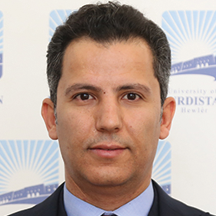Aid in the development of the Kurdistan region of Iraq
Since the establishment of the Kurdistan region of Iraq in 1992, international aid has played an important role in development of the region. This column outlines the effects before and after the war.
Dependency on natural resources and diversification of economies in MENA
It is widely understood that natural resource dependency can have a significant negative impact on a country’s long-term economic growth. This column explores evidence for how such outcomes arise – as well as potential diversification strategies that could help to reduce the resource curse in the economies of the Middle East and North Africa.


